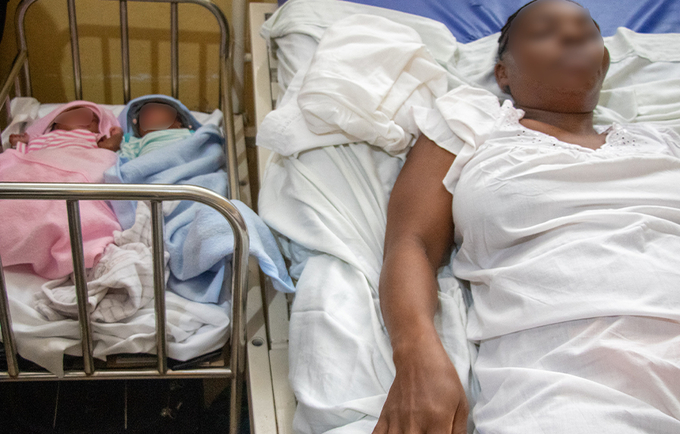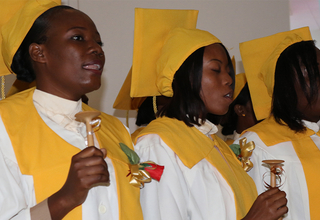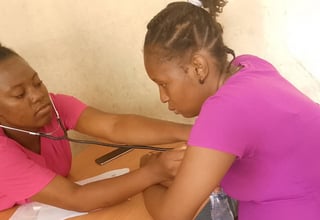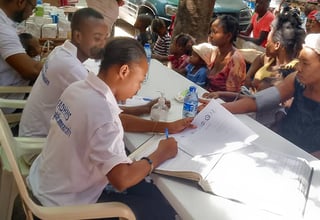Port-au-Prince, April 20, 2024 --- In support of the emergency response of the Ministry of Health and Population (MSPP), and with the aim of improving access to health care made increasingly difficult by the current security situation, UNFPA, the United Nations sexual and reproductive health agency, and the Pan American Health Organization (PAHO/WHO) are jointly supporting 3 hospitals in the Port-au-Prince metropolitan area providing maternal health services.
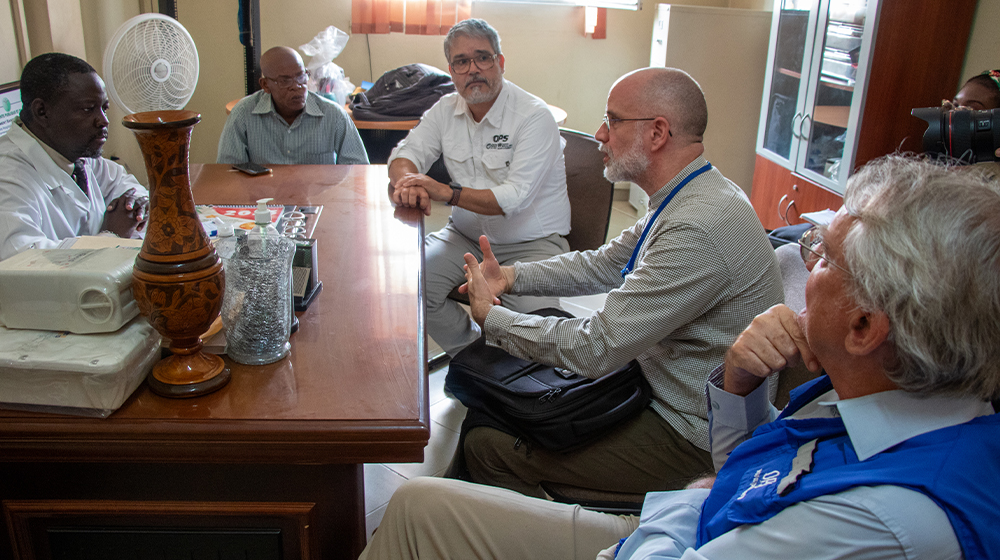
Ensuring continuity of maternal health care
The Eliazar Germain Hospital is one of the three centers benefiting from this support, which includes the supply of essential medical equipment and products, and the installation of a reliable power supply system, guaranteeing constant availability of electricity.
“The support from UNFPA and PAHO/WHO now allows us to provide essential obstetric and neonatal care and respond to emergencies around the clock,” explains Dr. Francito Datus, medical director of the hospital. explains Dr Francito Datus, the hospital's medical director.
Josépha, a young mother of 34, bears witness to this transformation. She recently gave birth to twins, a girl and a boy, by Caesarean section. "It went well, I received very good care," she shares with relief.
Safer, less expensive care
"Our aim is to reduce the cost of childbirth, and thus enable pregnant women to give birth in decent conditions in an institutional setting, in the presence of qualified personnel," emphasizes Philippe Degernier, UNFPA Representative in Haiti.
Since the partnership was set up, 62 physiological deliveries and 45 caesarean sections have been recorded in the 3 beneficiary hospitals.
"Faced with the deterioration in access to health services, particularly maternal health services, our support aims to increase the capacity to manage not only deliveries but also obstetric complications, thereby reducing the risk of maternal and newborn mortality," explains Dr Oscar Barreneche, PAHO/WHO Representative in Haiti.
The two agencies have also extended their support beyond maternity services, responding to urgent needs in sexual and reproductive health. Kits for the management of abortion complications and kits for the management of sexual violence have been distributed for this purpose.
Text: Vario Sérant et Tristan Rousset
Photos: Vario Sérant, Michael Isaac Junior Ambroise et David L. Mentor
